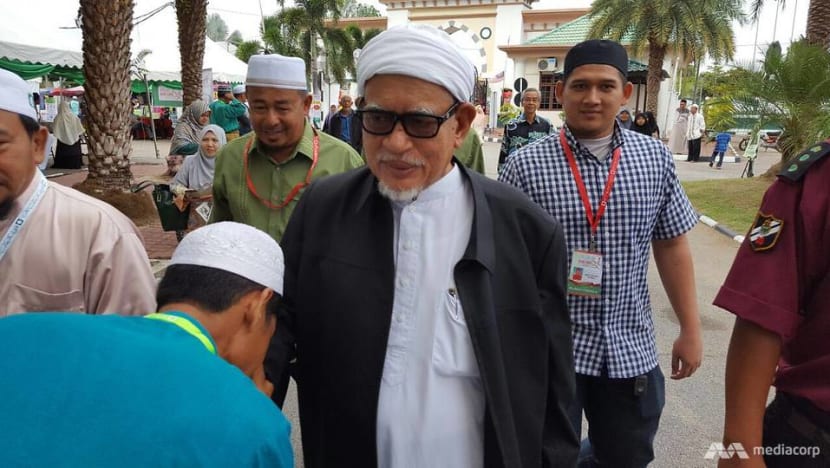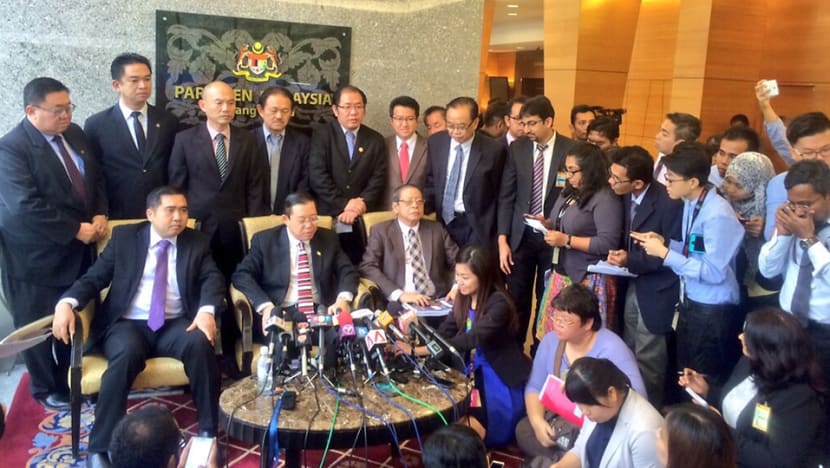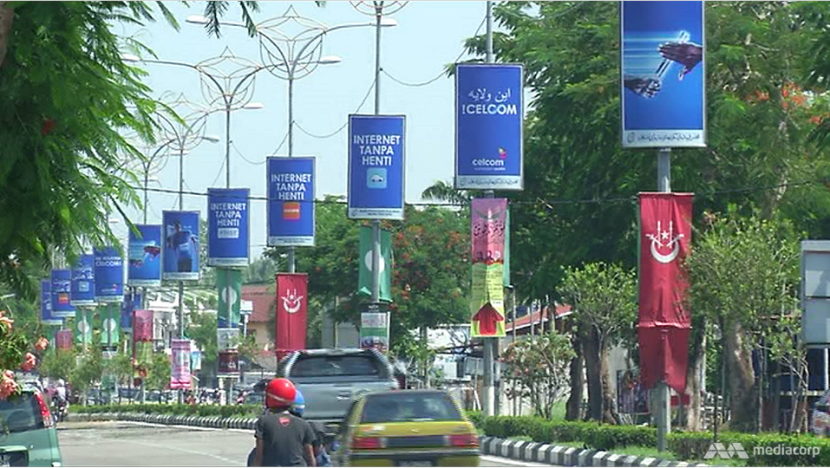commentary Commentary
Commentary: As battle for Malay voters heats up, don’t expect PAS to go quietly into the night
Many expect a three-cornered fight to benefit the ruling Barisan Nasional but commentators fail to understand the worldview of voters who support PAS, says one observer from the S Rajaratnam School of International Studies.

Pan-Malaysian Islamic Party president Hadi Awang. (Photo: Sumisha Naidu)
SINGAPORE: The upcoming 14th Malaysian General Elections have clearly drawn lines between the different political parties in the country.
However, the biggest confusion for most observers of Malaysian politics is the stance taken by PAS. It is assumed that the formation of another Islamic party, Parti Amanah Nasional (PAN), will have an impact on support for PAS and hence will result in massive losses for the party in the upcoming elections.
On the other hand, PAS leaders are confident that the party will perform better, possibly gaining as many as 40 parliamentary seats and capturing control of the state governments in six states.
MORE SUPPORT FROM MALAY VOTERS EXPECTED
PAS leaders have explained that the party’s strategy is based on several objectives in mind.
First, the party believes they will receive more support from Malay voters as a result of its disassociation with the Democratic Action Party (DAP).
Many within the party’s leadership are of the view that distrust for the DAP among many Malay voters caused them significant losses in Malay support in past elections.
Second, the party is certain that the top echelon of the DAP’s leadership is controlled by Christian “evangelists” who are out to mould Malaysia into a Christian state.
Hence, the party sees it necessary to ensure that the DAP’s political position is weakened.

Third and most importantly, the party aims to implement Islamic laws (hudud) in Kelantan, a state it has long held.
One PAS leader Kamaruzaman Mohamed noted that:
PAS members have sacrificed their time, money and energy to strive for Islam. We want to win elections not for power or glory but to be given the right to implement Islamic laws. If another party be it UMNO or PKR can implement these laws, we are happy to support such an effort.
ERADICATED IN THE NEXT ELECTIONS?
Most analyses suggesting PAS will be eradicated electorally fail to understand the worldview of many of the party's voters. At least one-third of PAS voters support the party because it represents true Islam in Malaysia to them.
These voters feel they would be sinning if they voted for any other party and would incur the wrath of God if they were to withdraw their support for the party.
Contrary to common perceptions that a three-way contest will favour the ruling Barisan Nasional (BN), a three-way contest can potentially benefit PAS especially in the northern states where the party’s Islamic appeal is stronger and the party’s hardcore supporters are based.
In addition, PAS leaders are of the view that the formation of the Parti Pribumi Bersatu (Bersatu) will likely cause a split in UMNO’s support, which will benefit PAS since the party can depend on its loyal supporters to remain steadfast in their allegiance.
Hence, the party will remain a formidable force in the northern states of Kelantan, Terengganu and Kedah.

There is however little doubt that PAS’ support amongst non-Muslim voters will dissipate. These votes were crucial for the party in mixed race seats and lead to diminished support in Selangor, Perak and the southern states of Melaka, Negeri Sembilan and Johor.
It is also political bravado of the PAS leadership to suggest that the party will be able to impact support for the DAP given that seats contested by the DAP are traditionally Chinese-majority seats where PAS has no traction.
Studies such as that by think tank INVOKE suggesting that PAS will be completely eradicated have gained traction but should be approached more critically due to INVOKE’s close links to PKR leaders such as Rafizi Ramli.
PAS A KINGMAKER?
Even with a reduction in support for the party, PAS could prove crucial in determining the next government especially in scenarios where BN and Pakatan Harapan (PH) garner similar number of seats in the federal parliament.
In such a scenario, both PH and BN may be dependent on PAS to form the next government.
One PAS leader noted that the party will play the important hudud card demanding that any coalition that the party supports must allow for the implementation of hudud.
An even more likely scenario is PAS’ kingmaker role in a number of state assemblies such as Kedah where all the main political contenders have similar levels of support.
Regardless of the party’s performance in the upcoming elections, PAS will remain an important player in Malaysia's political system.
The party’s one-million strong membership, political influence among many Malay voters and strong grassroots network render the party too important to ignore. PAS will simply not dissipate into political wilderness as proposed by some watchers of Malaysian politics.
Assistant Professor Mohamed Nawab Mohamed Osman is coordinator of the Malaysia Programme at the S Rajaratnam School of International Studies at the Nanyang Technological University.
Read the first commentary in the S Rajaratnam School of International Studies (RSIS)'s series on the 14th Malaysian General Election on the deep ironies within the Malaysian opposition.














